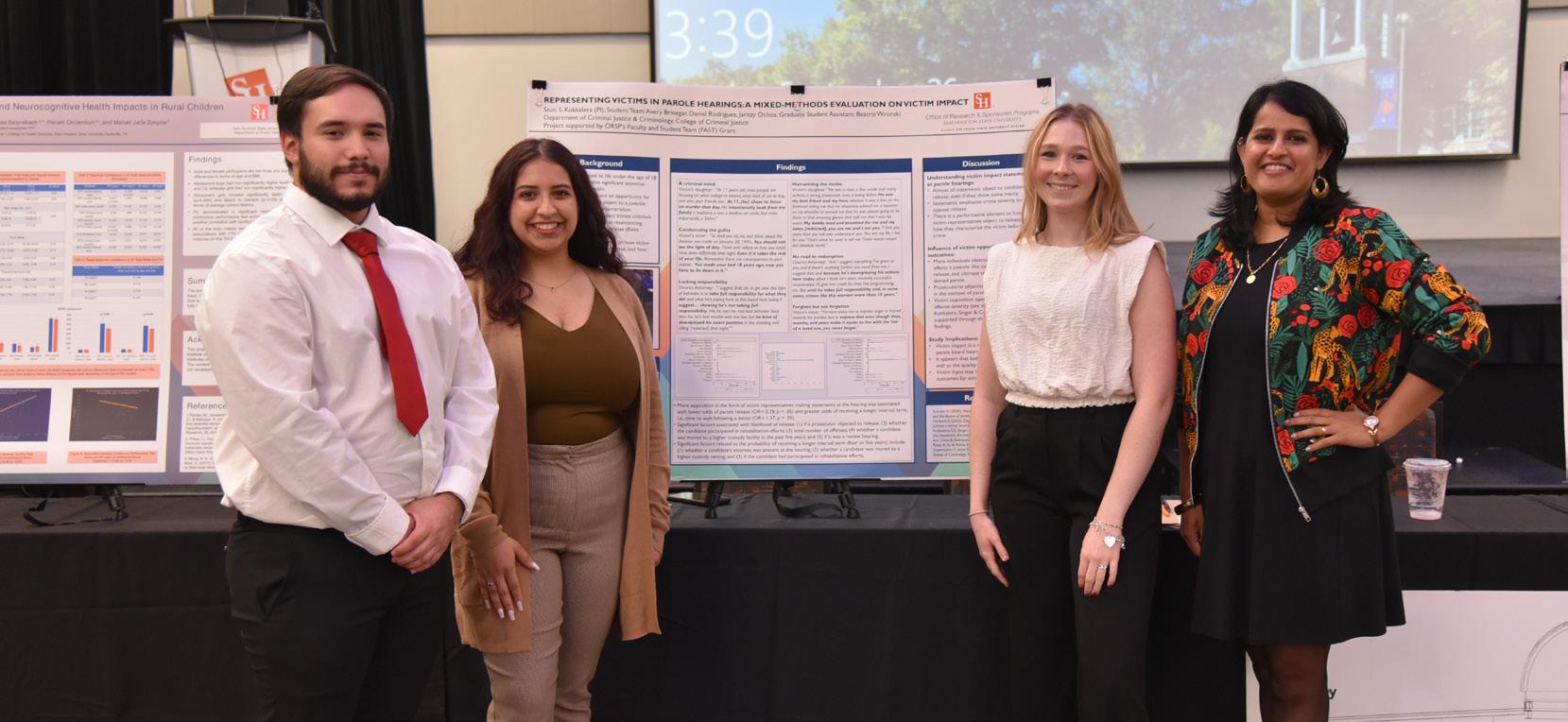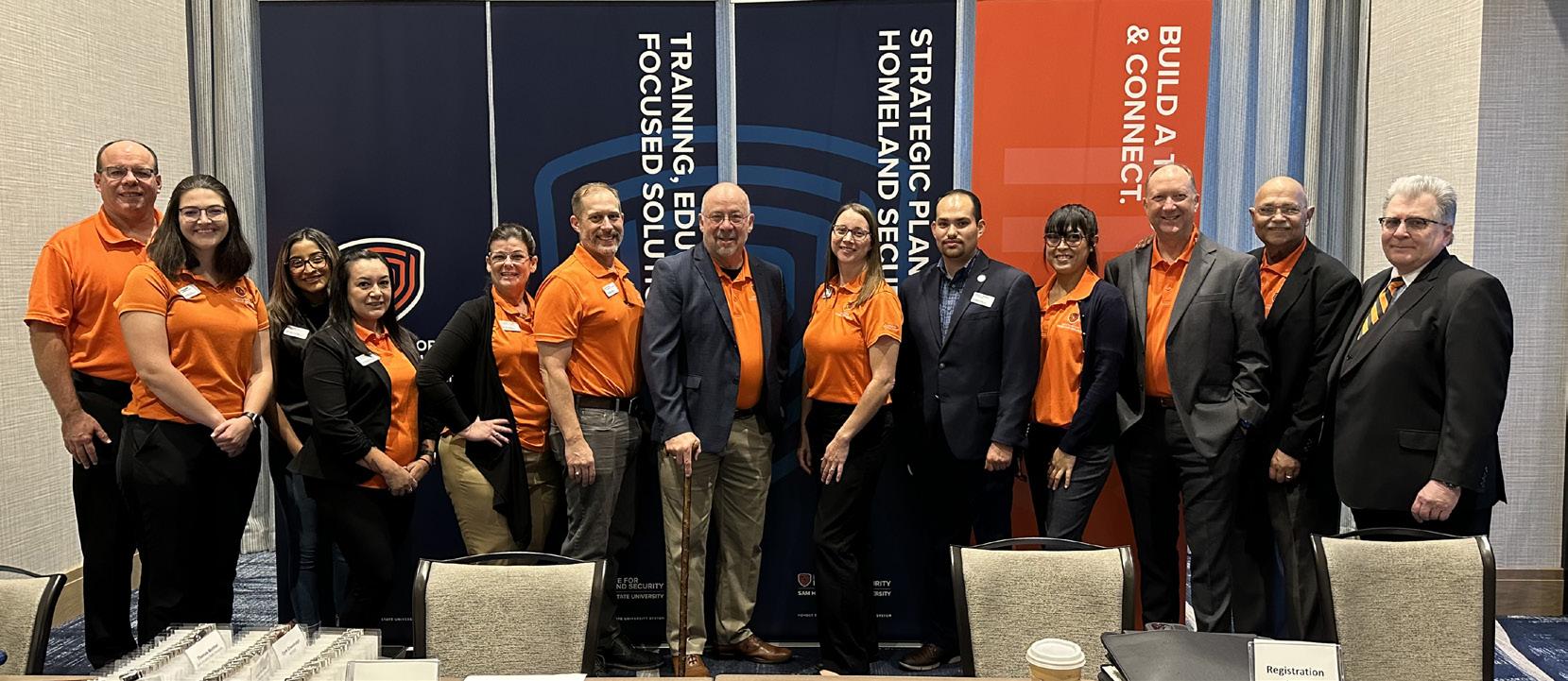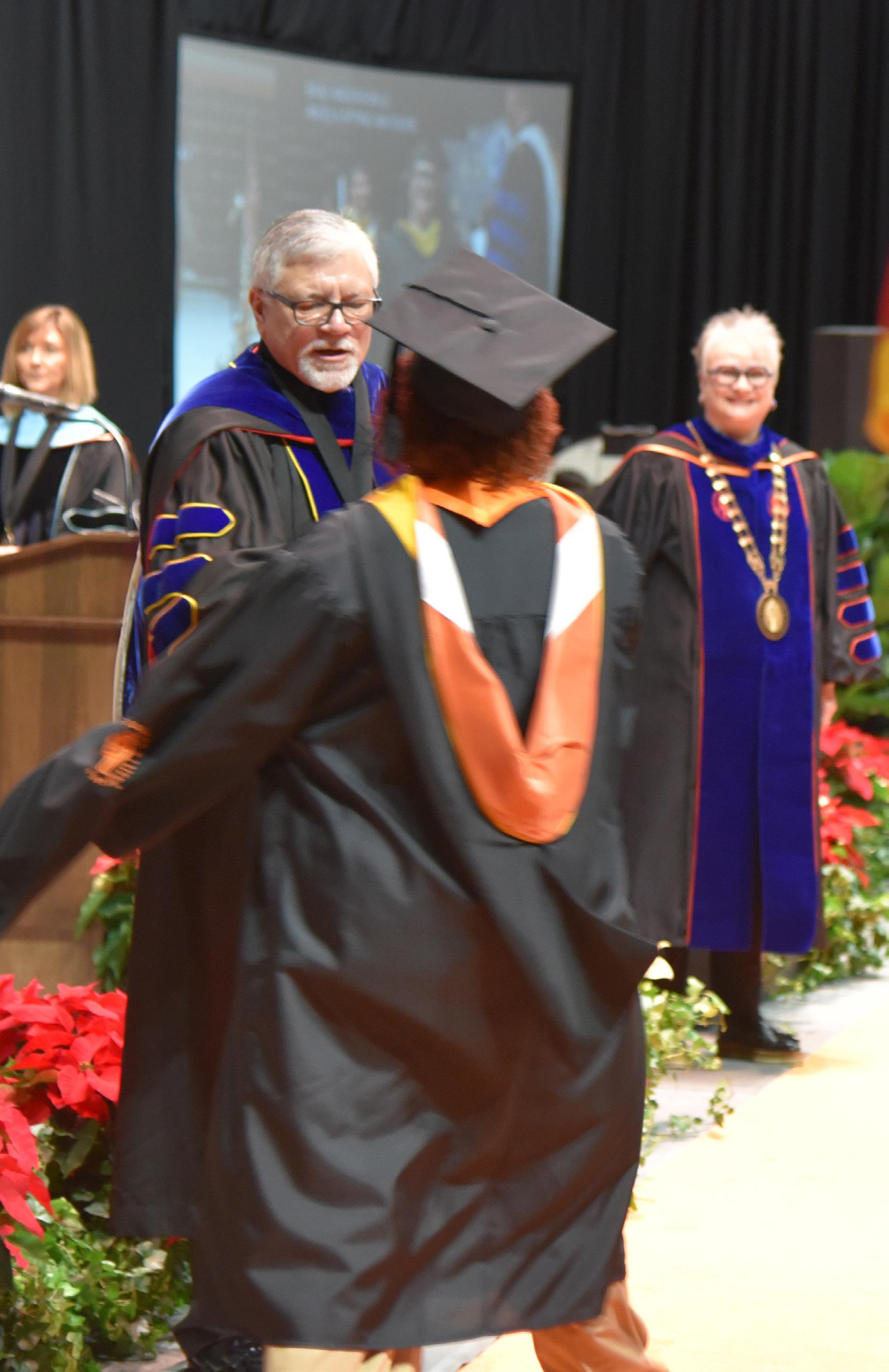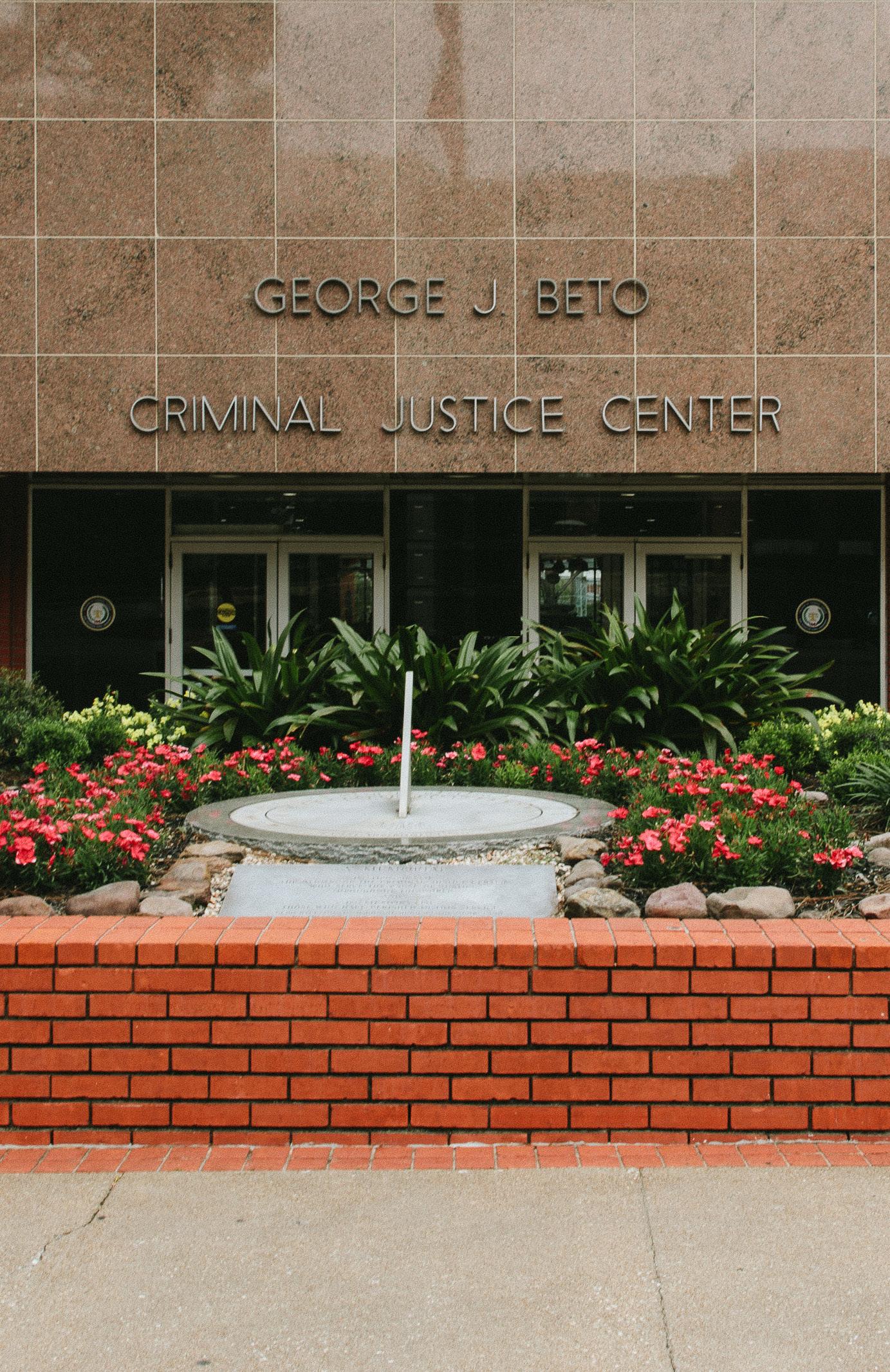2023-2028 STRATEGIC PLAN




Since opening its doors in 1976, the George J. Beto Criminal Justice Center continues to fulfill its mission as a center for lifelong learning for students and practitioners in the fields of law enforcement, corrections, victim services, forensic science, and homeland security. The Center serves as a model of how academics, corrections, and law enforcement can work together for the betterment of criminal justice systems around the globe. Its extensive alumni network stretches across the world in criminal justice positions that impact the daily lives of the people they serve.
Students at the College learn from world-renown faculty who are recognized as specialists in their respective fields, earning awards and accolades for their contributions and service.
Each member of the faculty brings a wealth of knowledge to the College, as successful practitioners in the field, prominent researchers in their disciplines, or experienced participants in criminal justice systems abroad. Together, faculty provide a well-rounded experience for graduates bringing research into practice to enhance their careers.

The College enjoys an outstanding reputation in the field, regularly placed among the top programs by U.S. News & World Report and other respected independent organizations ranking undergraduate and graduate programs, ranking third in the country for its online criminal justice program and continuing to earn high marks for research and scholarly work.
The college consistently maintains an enrollment of over 3,000 undergraduate and over 400 graduate students in criminal justice, criminology, victim studies, homeland security, and forensic science.
Our Values
Student Success and Support
Academic Excellence Service and Community
Engagement
Inclusive Excellence
Collaborative
Environment
Honor
Creativity and Innovation

To be nationally renowned for advancing a multidisciplinary and collaborative approach integrating theory, research, and practice in the fields of criminal justice, criminology, victim studies, homeland security, and forensic science. This integrative approach offers the best criminal justice education in Texas and the nation, equipping our students for professional careers and higher academic pursuits. We aspire to be at the forefront for the quality of our executive education and networks that propel individuals, leaders, and organizations to contribute to safer and more just societies.
The SHSU CRIMINAL JUSTICE Center seeks to enhance the upward social mobility of students and professionals within Texas and nationwide, aiming to elevate the overall quality of life for everyone in our communities. The College’s commitment to teaching, research, and service actively drives improvements in policy and practice, nurtures critical thinking skills, instills ethical values, and imparts real-world knowledge. We prepare students for careers, provide professional development, support technical assistance to organizations, and produce, translate, and disseminate research across the disciplines. Integrating teaching and research through active collaboration with practitioners, policymakers, and community organizations empowers our diverse students and working professionals with the latest advancements essential to making meaningful contributions to a global society.

Foster an innovative approach to education, equipping our students for impactful professional careers and higher academic pursuits by offering a comprehensive understanding of criminal justice, criminology, victim studies, homeland security, and forensic science to a diverse student population.
Equip students for professional careers and advanced academic pursuits by creating and delivering innovative degrees and academic certificates informed by current trends in the field.
Provide diverse student populations opportunities for social mobility by facilitating access to comprehensive education, fostering success, preparing students for lifelong achievements, and enhancing programmatic efforts and initiatives to eliminate opportunity and achievement gaps.
Increase student growth by recruitment, retention, and graduation, transforming undergraduate and graduate students toward success and driving sustainable growth within the COCJ’s departments.
Increase the availability of internships and study abroad/study away opportunities, expanding career readiness through experiential learning and career exploration and facilitating personal and professional development for students.


Promote multidisciplinary and collaborative research initiatives that bring together faculty, practitioners, policymakers, and students to address challenges in the field and contribute to meeting the needs of individuals, organizations, and leaders in the communities we serve.
Promote collaborative research partnerships across higher education institutions, research institutions, and international partners to contribute to the Center’s and university’s visibility and reputation.
Expand the integration of student research supporting faculty, practitioners, centers, and institutes’ contribution to criminal justice, criminology, homeland security, victim studies, and forensic science.
Increase the number of grant applications submitted, grants awarded, and the total dollars awarded from external agencies.
Expand research in the field impacting organizations and communities in criminal justice, criminology, victim services, forensic science, and security studies.

Deliver Professional Development, Community Service, and Technical Assistance to the State and Beyond
Offer ongoing life-long learning opportunities for individuals, organizations, and communities featuring the latest advancements in criminal justice, criminology, homeland security, victim studies, and forensic science, aligning with the university’s mission to empower students and professionals for lifelong success.
Deliver professional development opportunities for working professionals, offering pathways from personal and professional development to academic credit.
Incorporate innovative ways to engage and serve the community, including increasing the number of Academic Community Engagement (ACE) courses offered and enhancing alumni outreach.
Provide technical assistance to the state and beyond, promoting advancements in criminal justice, criminology, victim services, forensic science, and homeland security.
Enhance global engagement in professional development and technical assistance and foster cross-cultural integration with students and student organizations.
Elevate the visibility of existing community and agency relationships through high-profile events.
Implement a strategic framework that integrates cutting-edge infrastructure development, enhances faculty and staff productivity and satisfaction, fosters a culture of academic excellence, and integrates sustainable technological innovation within the Center.
Align processes and resources to support faculty and staff retention within the Center, enhancing faculty and staff empowerment, productivity and satisfaction.
Leverage cutting-edge distance learning pedagogy and sustainable technological innovation to support the success of online programs and initiatives.
Integrate academic and professional efforts by expanding collaboration among academic departments, centers, and institutes.
Promote greater philanthropy through the Criminal Justice Center network focused on scholarships, donations, and community engagement.
Create targeted and innovative marketing and recruitment strategies.


Dear SHSU College of Criminal Justice Community,
As we embark on our strategic journey for 2024-2028, I’m excited to share our vision and mission, which are rooted in multidisciplinary integration, collaboration, and community impact. Our college has long been a leader in criminal justice and criminology, victim studies, homeland security, and forensic science. This plan aims to elevate our standing both within Texas and nationwide.
We are dedicated to enhancing social mobility for our academic and professional development students and improving the quality of life in our communities. We drive advancements in policy and practice through the research we conduct, nurture critical thinking and instill ethical values through the courses we teach, and impart real-world knowledge through multiple venues, including our courses and research outlets. Our success stems from active collaboration with practitioners, policymakers, and community organizations.
To achieve our goals, we will focus on four priorities: a) Multidisciplinary Education and Student Success, b) Expanding and Elevating Collaborative Research, c) Delivering Professional Development, Community Service, and Technical Assistance, and d) Exemplifying a Culture of Innovation and Sustainability.
This plan is more than a document; it’s our commitment to students, faculty, staff, and the communities we serve. It represents our promise to uphold our mission and secure a strong future for the College. I’m proud of the collaborative effort behind this plan and confident in our ability to achieve our goals.
As we move forward, we recognize both the opportunities and challenges ahead. I look forward to working with you as we navigate this ambitious journey, fulfilling our aspirations and continuing our tradition of excellence.
Sincerely,
Phillip M. Lyons, Jr. Dean
